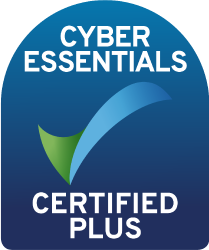It’s no secret that communication is a vital asset to all small businesses—and that is why setting up a reliable, scalable network for your small business is crucial.
Allowing intercommunication between your devices helps improve staff efficiency, and makes collaborative working easier. But setting up a small business network is a daunting task—that’s why we’re here to help.
This handy guide will help you understand what you need to set up a small business network and get you on your way to a unified business environment.
What is a small business network?
Let’s start with the basics. A small business network is a web of links that connect to the computers, telephones, printers, fax machines, scanners and devices in your organisation.
By creating a network for your small business, you allow each device to talk to one another, sending and receiving information between themselves. These networks can be across single or multi location sites, and can even incorporate home workers and offices in other countries.
With a network, you can interconnect all of your devices, which makes emails, file transferring, printing and other collaborative tasks a lot simpler.
Implementing a small business network also ensures that your devices have a reliable internet connection, with access points and routers providing broadband connectivity across your entire business.

How do I set up a small business network?
Setting up a network at a small business is no easy task. There are lots of technical decisions to consider, including cabling points, protocols, broadband connection and more.
Before you begin the process of choosing your network provider, you should consider the following…
1. How many network points do I require?
To improve reliability, a wired network may be the best option for some of your devices. Computers, printers, scanners, telephones and other permanent equipment will benefit from a wired connection to your network.
Before setting up a network, consider how many devices you will need a wired connection for, and where they are located.
2. What area does my network need to cover?
Many small businesses often utilise home working and satellite offices—which adds another layer to any network.
Consider how many separate locations your network needs to cover, do home workers need a connection? Will you be using a VPN? It may be a more technical undertaking if you’re looking

3. What level of network security do I need?
Security is a very important factor to consider when setting up a small business network. Do you need a firewall? Content filtering? PCI compliance?
With sensitive equipment such as card machines, POS systems and sometimes even servers running on your network, maintaining a high level of security is top priority. Our team work hard to provide a secure network, by sectioning off specific parts to ensure compliance with data protection regulations.
4. Do I have any existing network infrastructure?
If you have existing network infrastructure in place, you may be able to use it. By converting existing infrastructure to a new network, you reduce rollout costs and minimise the disruption to your business.
However, for businesses setting up a completely new network, having good quality infrastructure installed in a tidy fashion is important.
5. What is the purpose of my small business network?
A small business network can serve many purposes. Connecting computers to the internet, allowing voice over IP (VoIP) calling, transferring files and emails, keeping card machines online and more.
Before setting a network up, you should consider the purpose of the network, what will it be used for? How many devices will be using it etc?
Before setting up any network, we perform thorough on-site surveys at any small business. Having a physical survey ensures that network installation and implementation goes smoothly, by having a clear picture of how your network will be set up.

What equipment is required to set up a small business network?
Here is a list of the most common equipment when setting up a small business network.
- Computers
Everyone knows what a computer is. These are often connected via a wired or WiFi connection to your small business network.
- Access points
Access points are strategically placed devices that broadcast WiFi networks to nearby clients (such as mobile phones, tablets, laptops etc). These are wired back to a central point and ensure seamless mesh WiFi connectivity

- Switches
A network switch is a small piece of equipment that powers and controls your access points and telephone equipment. They often provide power and broadband connectivity to these devices.
- Routers
Just like in your house, a router connects your small businesses network to the internet via a broadband connection—usually fibre optic.
- Network cable (CAT5)
Network cables are the veins and arteries of any network. They carry data traffic to and from devices. By using CAT5 cabling (rather than wireless connections), you can increase network reliability.
- Network points
Network points, also known as ethernet points, are the terminating end for CAT5 cables. These points provide a data socket, where you can plug devices such as telephones, computers and printers.

- Telephones
Many businesses use VoIP as their main form of communication. As such, VoIP desk phones are a popular option—and they are connected to your network via a wired or WiFi connection.
- Printers/scanners (optional)
Although paperless offices are increasing, printers and scanners are still a very important device in office environments. These devices can be shared across an entire network to improve workflow and give all devices access to them.
- 4G/5G Backups (optional)
With such high reliance on broadband connectivity, many small businesses opt for a 4G/5G backup connection as well as a traditional fixed line connection. This ensures minimal downtime in the event of a broadband outage.

How much does it cost to set up a small business network?
We know how important a budget is, particularly for small businesses. Networks can vary in cost, with the main factor being scale and complexity.
As you might expect, large scale networks with multiple sites are more expensive to setup than smaller networks across one site. On-site surveys help us to get a better understanding of what costs might be involved in setting up your small business network.
Another impacting factor is your existing infrastructure. If you have cabling and network points already in place, then you may be able to reuse those, and just add additional ones if required.
Our team spend time to understand your business requirements, complete surveys and put together a bespoke network solution to meet your current and future requirements.
Setting up a network for your small business is a daunting task, especially while you’re trying to run a company at the same time. Our team offer in-house technical support and complete project management—from consultation to completion.
Give us a call today for a free, no-obligations conversation about your small business network and see how we can help. No sales talk, just an honest chat with one of our experts.






